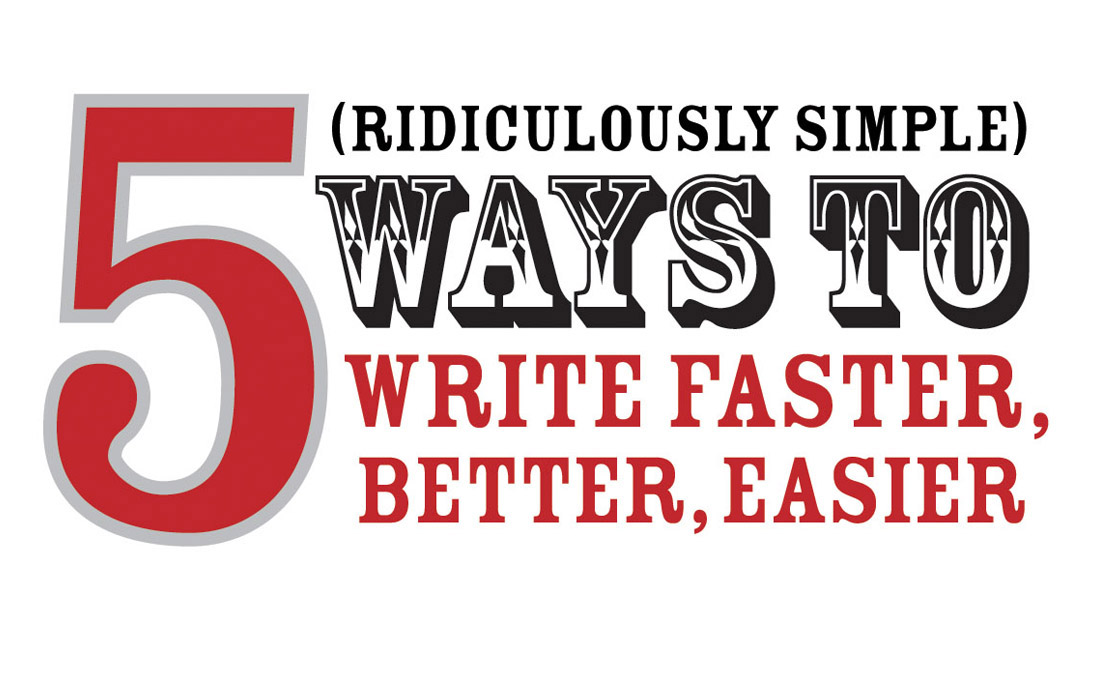The Fascination Method
 Thursday, July 16, 2009 at 07:45AM
Thursday, July 16, 2009 at 07:45AM 
Tom's note: As this blog enters it's fourth year of publication, I am incredibly delighted to introduce to you the first ever guest post by Mark Levy- a true creative genius and positioning guru. Thank you, Mark, for contributing!
One of the hats I wear is that of writing coach. I guide businesspeople in writing books.
During a typical first session, my client isn’t sure what their book will be about, but they take guesses. They tell me about what they think the marketplace wants, and what they think they can sell. They then start tossing around promising premises.
I stop them.
Rather than looking outside themselves, or prematurely playing with premises, I ask them to complete an assignment.
They’re to make a list.
I ask that they list anything that fascinates them. I’m talking facts, figures, insights, prejudices, anecdotes, pet philosophies, case studies, controversies, analogies, processes, memories, business models, role models, URLs, blogs, scenes, dreams, screwy notions, poems, jokes, myths, snippets of conversation, anything. Anything!
They’re not to wonder why a particular item fascinates them.
They’re not to worry if an item is original, or if it’s “book-worthy,” or if it has anything to do with their core business. Their task is to list items that, for whatever reason, have energy for them. Items that radiate.
What we’re doing is playing a game: We’re treating anything that appears in their mind as potentially valuable book material.
Only after they’ve made their list do we start thinking about their business goals and would-be readers.
We study the list, move items around, add to them, group them, and look for themes. Believe me, we find themes. It’s like what Edward Tufte meant when he wrote “the act of arranging information becomes an act of insight.”
From these places of energy, we find the book’s premise and much of its supporting material. This material comes from an honest place within the client. It comes from the spot in their brain where they keep things they can’t forget.
This production method isn’t only for book-writing. Any storyteller can use it no matter the medium. The key is to generate lots of material, so you can cut the filler and use the parts with juice.
Questions to Ask Yourself
• Have you used anything like the fascination method before?
• How might you use it in your next project?
• How might you use it in a collaborative project?
Mark Levy is the founder of Levy Innovation LLC, a marketing strategy firm that helps consultants and entrepreneurial companies increase their fees by up to 2,000%. David Meerman Scott calls him “a positioning guru extraordinaire.” Mark has written or co-created four books, including Accidental Genius: Revolutionize Your Thinking Through Private Writing.
Follow Mark on Twitter at @levyinnovation




Reader Comments (4)
I know what you mean. If you haven't read "Accidental Genius," you're in for a real treat!
Tom
When I was talking to Mark about this post ahead of time, I shared with him how I use this process during the interview process. Instead of writing down ideas, we share them in a conversation. It isn't until later on, during scripting, that the ideas and themes start emerging.
That's what I love about Mark's method- you can take this process and use it in so many ways!
Tom